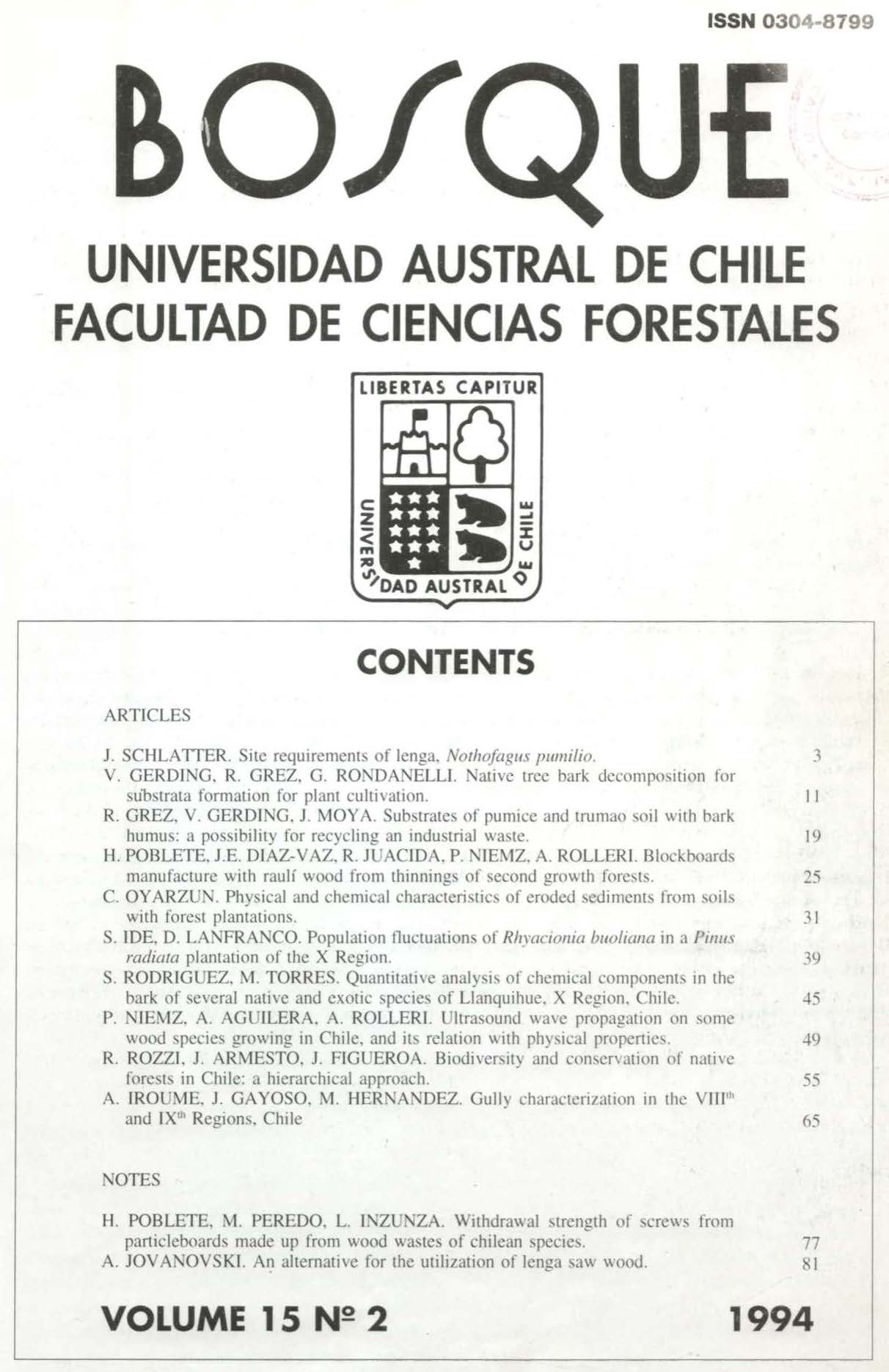Native tree bark decomposition for substrata formation for plant cultivation
Main Article Content
Abstract
A mixture of native tree bark was subjected to an incomplete oxidation process (composting) under the effects of adding nitrogen (urea), phosphorus (triple superphosphate), dendroenergy cauldron ash, and native tree litter inoculum. The best physical properties of the tranformed bark were obtained by the combined effect of nitrogen, phosphorus and inoculum, even though all the treatments allowed good physical conditions, with no limitations for cultivation. With the nutrient regime, each factor had an effect on the availability of certain elements, but all the treatments permitted similar availability levels. In general, availability (weight/volume) is insufficient for cultivation. All of substrata require fertilization depending on the treatment applied for transformation. As a whole, additions of urea plus triple superphosphate allowed the best microbiological transformation processes, whereas inoculum and ash additions showed minor benefits.

